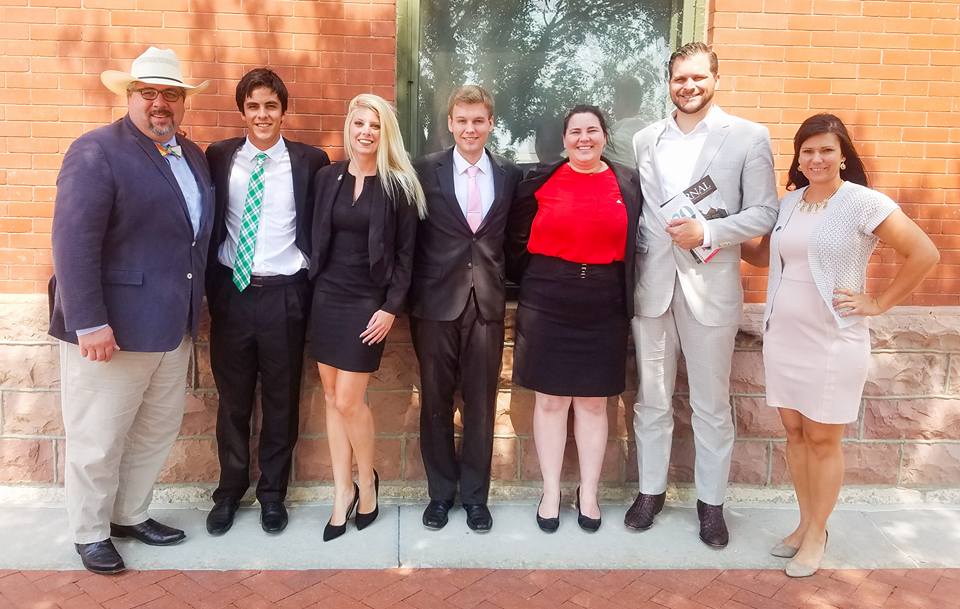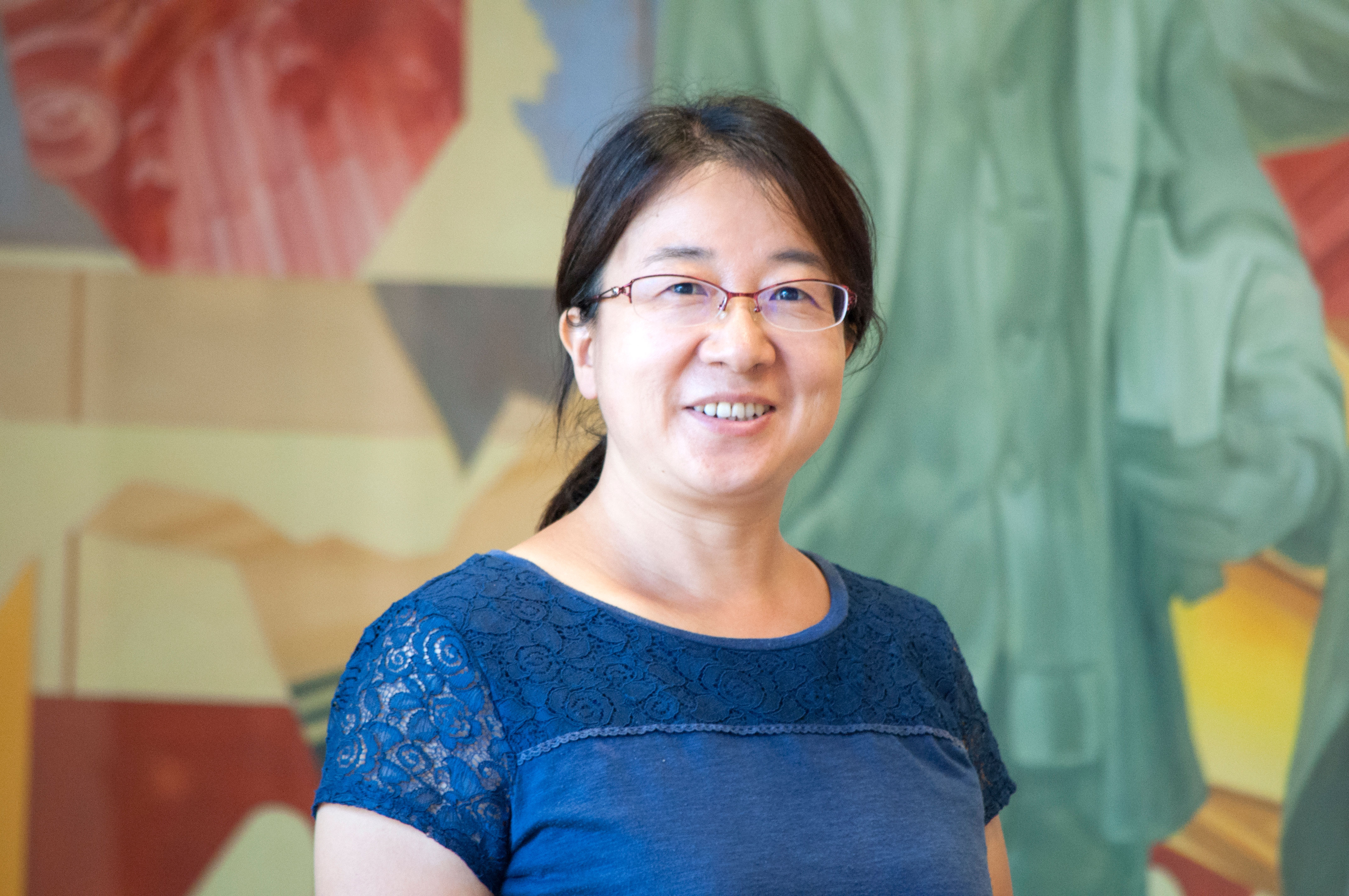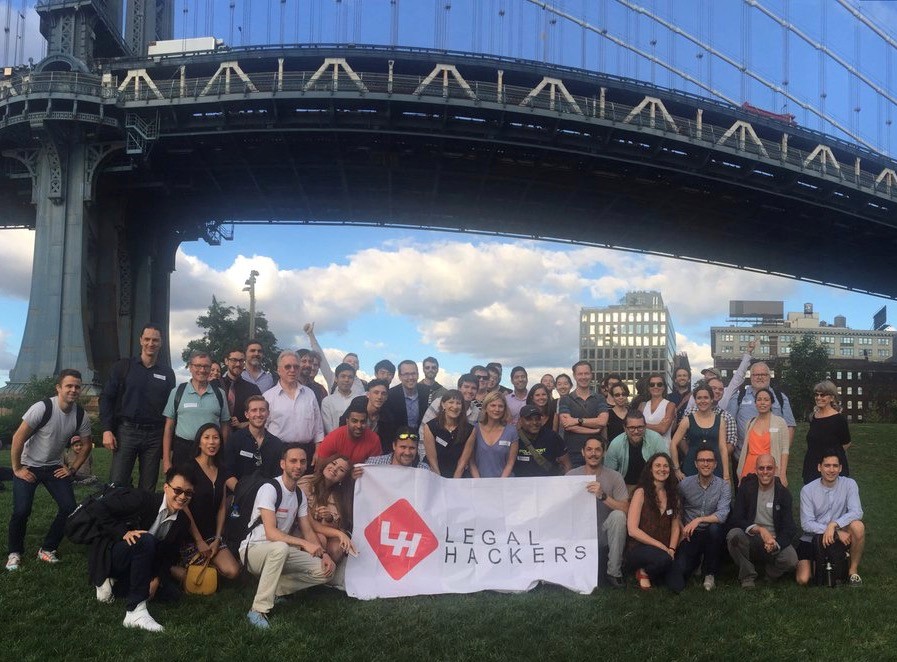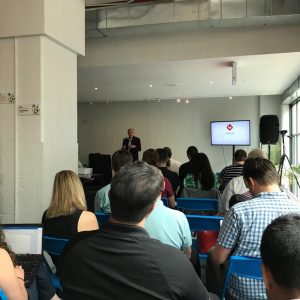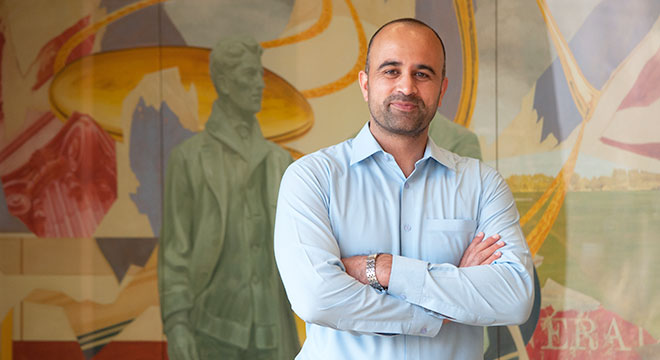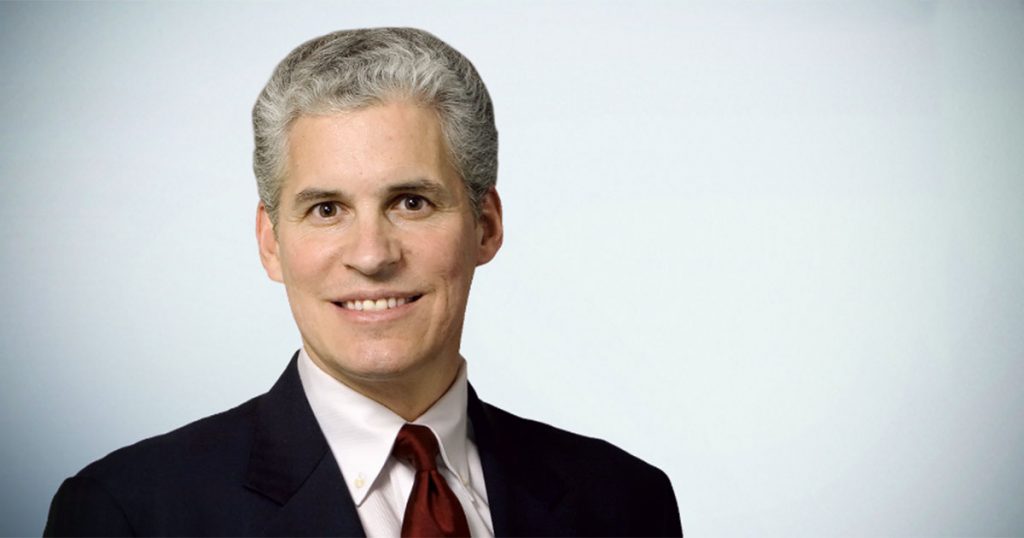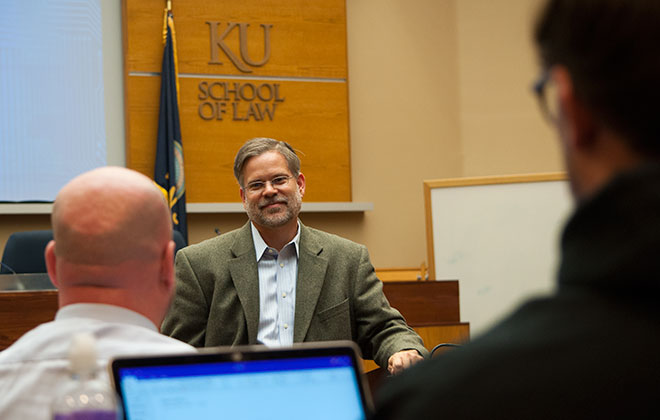
Kansas Supreme Court Justice Caleb Stegall teaches Appellate Advocacy at KU Law.
Alumni judges return to KU Law as teachers
For future attorneys whose professional success will often hinge on the ruling of a judge, having one as a law professor can be especially instructive.
Just ask 3L Lindsay Strong.
“Having a Kansas Supreme Court justice as a professor has provided the unique opportunity to learn how judges think and what they are looking for,” said Strong, who is taking Appellate Advocacy this fall from Kansas Supreme Court Justice Caleb Stegall. “This advantage is especially valuable given the court will ultimately decide the fate of our case.”
Stegall, L’99, is one of two sitting members of the judiciary teaching at KU Law. Judge Steve Leben, L’82, of the Kansas Court of Appeals, has taught Legislation (now Legislation & Statutory Interpretation) each spring but one since 2007. This is Stegall’s first time behind the classroom podium.
“I’ve enjoyed returning home to Green Hall,” Stegall said. “Being able to see anew the ideals of our profession through the eagerness and excitement of students is an invigorating reminder to practitioners and judges of why we fell in love with the law in the first place.”
Sitting judges serve KU Law in a variety of ways, from presiding over the final round of the in-house moot court competition to administering an oath of professionalism to each year’s incoming class to supervising students in judicial field placements and more. Some of those relationships span decades. Judge Robert Fairchild, L’73, of the Douglas County District Court retired from his service at KU Law last spring after 26 years of teaching Alternative Dispute Resolution and Criminal Law to generations of students.
“Students definitely get value from having a chance to interact in the classroom with a sitting judge,” Leben said. “Over the course of the semester, in addition to learning the subject matter at hand, they also get a feel for how courts and judges really work. I regularly discuss with them things that have happened in oral argument or in working through an opinion – after it’s released, of course. And as the semester goes along, they feel free to ask more questions about the judicial process.”
Stegall requires his Appellate Advocacy students to observe oral arguments at the Kansas Supreme Court, where they see classroom conversations play out in a practical setting.
“This allows us, as students, to focus on the positive and negative aspects of attorneys’ advocacy styles and determine how we would go about advocating differently,” Strong said.
Beyond imparting practical skills, Stegall said he hopes increased interaction between law students and judges helps strengthen the relationship between the legal academy and the judiciary. “Anything we can do to reconnect the two strikes me as a good thing for the bench, the bar and the legal profession as a whole.”
Leben, who is winding down a 20-year run as editor of Court Review, the quarterly journal of the American Judges Association, hopes he might be able to add a second course to his teaching load at some point.
“If I weren’t teaching, I would miss getting to know these new students who are starting careers, thinking about what they can do to contribute and how they can do their best work,” Leben said. “Like all teachers, I suspect, I know that our future is in the hands of today’s students. If I can help them be their best, I’ve done my part.”
— By Mindie Paget
